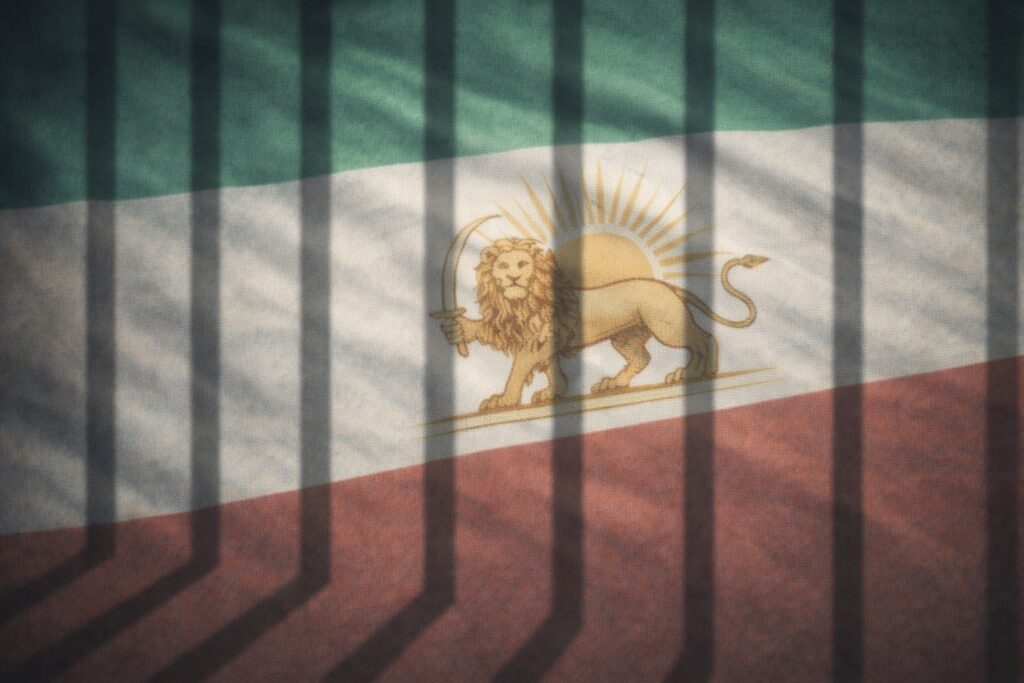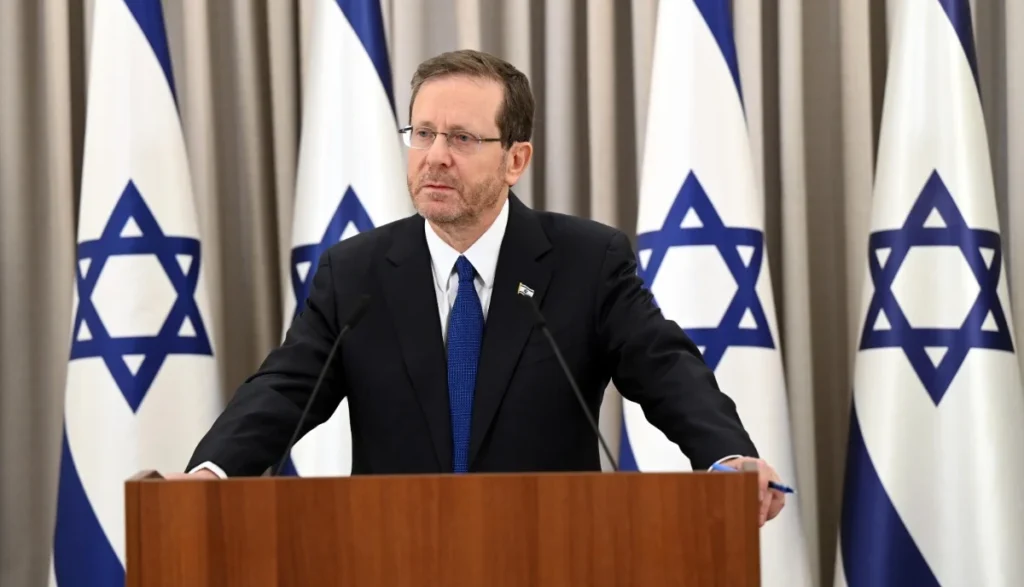UPDATES
UN Palmer Report – Blockade of Gaza is Legal
September 5, 2011 | Sharyn Mittelman

The United Nation’s “Palmer Report” into last year’s flotilla incident on the Mavi Marmara has vindicated Israel by finding that the naval blockade of the Gaza strip, including Israel’s right to enforce the blockade including in international waters, is legal under international law and it has also rebutted many of the false assumptions that have been made about flotilla incident.
The Palmer Report found:
“Israel faces a real threat to its security from militant groups in Gaza. The naval blockade was imposed as a legitimate security measure in order to prevent weapons from entering Gaza by sea and its implementation complied with the requirements of international law.”
The Palmer Report also urged that all future efforts to bring humanitarian aid to Gaza should be done “through established procedures and the designated land crossings in consultation with the Government of Israel and the Palestinian Authority”, therefore discouraging future Gaza flotillas.
The findings contradict those who claimed that Israel’s blockade of Gaza was illegal under international law, therefore the following international organisations and individuals should retract their comments:
- United Nations High Commissioner for Human Rights, Navanethem Pillay, who condemned Israel’s blockade of Gaza, calling it “a direct contravention of international human rights and humanitarian law. It must end now.”
- The Goldstone Report, “United Nations Fact Finding Mission on the Gaza Conflict” said: “1733. The Mission … considers that the series of acts that deprive Palestinians in the Gaza Strip of their means of subsistence, employment, housing and water, that deny their freedom of movement and their right to leave and enter their own country, that limit their rights to access a court of law and an effective remedy, could lead a competent court to find that the crime of persecution, a crime against humanity, has been committed.”
- The International Committee of the Red Cross said that Israel’s blockade violated the Geneva Conventions and stated that it constituted a collective punishment imposed in clear violation of Israel’s obligations under international humanitarian law.
- Amnesty International, in a report dated 1 June 2010, stated that “As a form of collective punishment, Israel’s continuing blockade of Gaza is a flagrant violation of international law.”
- The European Parliament, in a 14 June 2010 resolution, called the Gaza blockade “collective punishment in contravention of international humanitarian law” and demanded its immediate cessation.
In Australia, the following people also should retract their comments including:
- Melissa Park ALP Federal Member for Fremantle who stated in Parliament that the blockade of Gaza is “contrary to international law”, 26 May 2011.
- Kevin Jon Heller of University of Melbourne who stated “and if it is not currently involved in an IAC [international armed conflict] with Hamas, it is difficult to see how it can legally justify the blockade of Gaza”, 2 June 2010.
- Associate Professor Ben Saul, who is Co-Director of the Sydney Centre for International Law at the University of Sydney stated with respect to Israel’s blockade of Gaza “…there can be no authority under international law to enforce a blockade which is unlawful”, ABC unleashed, 2 June 2010.
- Former Greens MP Sylvia Hale who called the Gaza blockade “contrary to international law”, 19 June 2011, The Age.
- Senator Lee Rhiannon who referred to Israel’s blockade of Gaza as a “human rights abuse” on 2 September 2011, The Australian.
- Dora McPhee, a Palestinian rights activist, who in a letter to then Foreign Minister Stephen Smith requested “that the Australian Government call for an end to this flagrant and massive violation of international humanitarian law…” 20 December 2009.
- Anthony Loewenstein who stated in his book My Israel Question, “it was collective punishment, illegal under international law.”
The UN investigative committee was headed by former Prime Minister of New Zealand Sir Geoffrey Palmer who is an expert on maritime law and was established by the UN to examine the Israeli raid on the Turkish ship Mavi Marmara.
Israel has adopted the Palmer Report, with the exception of the reservations detailed by the Israeli representative to the Palmer Commission, Joseph Ciechanover (see below), largely in relation to the reports finding that Israel’s decision to board the vessels in the manner it did as “excessive and unreasonable.”
Other highlights of the Palmer report that support Israel’s actions include that:
- “the events of May 31st should never have taken place as they did and strenuous efforts should be made to prevent the occurrence of such incidents in the future”
- “The majority of the flotilla participants had no violent intentions, but there exists serious questions about the conduct, true nature and objectives of the flotilla organizers, particularly the IHH. The actions of the flotilla needlessly carried the potential for escalation.”
- “The incident and its outcomes were not intended by either Turkey or Israel … But more could have been done to warn the flotilla participants of the potential risks involved, and to dissuade them from their actions.”
- “The Israeli Defence Force personnel faced significant, organized and violent resistance from a group of passengers when they boarded the Mavi Marmara requiring them to use force for their own protection. Three soldiers were captured, mistreated and placed at risk by those passengers. Several others were wounded.”
Israel’s response to the Palmer Report
(Israeli Prime Minister’s Office announcement following publication of Palmer Report by UN Secretary General)
The State of Israel has adopted the Palmer Report, with the exception of the reservations detailed by the Israeli representative to the Palmer Commission, Joseph Ciechanover.
The State of Israel has adopted the Palmer Report, with the exception of the reservations detailed by the Israeli representative to the Palmer Commission, Joseph Ciechanover. The report, which deals with the flotilla incident of 31 May 2010 and has been adopted by the United Nations Secretary-General, is a professional, serious and comprehensive document.
The flotilla in question attempted to breach the naval blockade on Gaza. The Palmer Report confirmed the legality of Israel’s naval blockade of Gaza, and Israel’s right to enforce the blockade, including in international waters. This naval blockade was put into place to prevent the smuggling of missiles and other weapons to Hamas, a terror organization which controls Gaza and is supported by Iran. Over the last few years, Hamas has fired over 10,000 rockets and mortar shells with the objective of striking Israeli civilian targets.
While enforcing the naval blockade, Israel has interdicted many vessels on their way to the Gaza Strip with no casualties. In the case of the Mavi Marmara flotilla, Israeli soldiers boarded the vessels with non-lethal means and with no intention of causing any harm. When they were brutally attacked by dozens of violent IHH activists armed with clubs, knives and steel pipes, the Israeli soldiers were forced to defend themselves. After many soldiers were injured during the operation, nine of the IHH members who were endangering IDF soldiers were killed.
As advised in the report, Israel once again expresses its regret over the loss of life, but will not apologize for its soldiers taking action to defend their lives. As any other state, Israel has the right to defend its civilians and soldiers.
Israel cherishes the significant ties, past and present, between the Turkish and Jewish peoples. For that reason, the State of Israel has made numerous attempts in the last few months to settle the dispute between the two countries, but regrettably, these attempts have not been successful.
The State of Israel hopes that a way will be found to move beyond this discord and will continue its endeavors to that end.
It should be emphasized that beyond ratifying the legality of the blockade, the report determines that there is no humanitarian crisis in Gaza, and that anyone interested in sending humanitarian aid to the Gaza Strip must do so in coordination with Israel and the Palestinian Authority, and must transfer the aid via the land crossings.
In regard to the Israeli ambassador to Turkey, he concluded his term earlier this week, and has already bid farewell to his Turkish colleagues. He had previously made his plans to return to Israel in the coming few days.
Israel presumes that Turkey will respect the international laws pertaining to marine travel in the Mediterranean Sea.
Statement by Mr. Joseph Ciechanover
As the Representative of Israel to this Panel, I join the Chairman and Vice Chairman in adopting this report. Israel appreciates the important work of the Panel and thanks Sir Geoffrey Palmer and Mr. Alvaro Uribe for their leadership. Their efforts should send a message to the international community about the need to engage with all sides to a dispute and to avoid prejudging an incident before all of the facts are known.
Israel has reservations to a few aspects of the report, which are expressed below, but appreciates that the report concurs with Israel’s view that the “naval blockade was legal,” that it “was imposed as a legitimate security measure in order to prevent weapons from entering Gaza by sea,” that the blockade’s implementation “complied with the requirements of international law,” and that Israel had a “right to visit and search the vessel and to capture it if found in breach of a blockade”, including in international waters.
The Report rightly finding serious questions about “the conduct, true nature and objectives of the flotilla organizers, particularly IHH,” notes that they planned “in advance to violently resist any boarding attempt” and classifies the decision to breach the blockade of Gaza as a “dangerous and reckless act,” which “needlessly carried the potential for escalation.”
Israel also notes the importance of the Panel’s support for Israel’s long-standing position that “all humanitarian missions wishing to assist the Gaza population should do so through established procedures and designated land crossings in consultation with the Government of Israel and the Palestinian Authority.”
At the same time, Israel does not concur with the Panel’s characterization of Israel’s decision to board the vessels in the manner it did as “excessive and unreasonable.” The Panel was provided evidence of the repeated warnings it gave the vessels regarding its intent to board them. Israel feels that the Panel gave insufficient consideration to the operational limitations which determined the manner and timing of the boarding of the vessels and to the operational need for a covert takeover in order to minimize the chances for resistance on board.
As to the actions of Israel’s soldiers, given the panel’s conclusions regarding the resistance that they encountered when boarding the Mavi Marmara, it is clear that the soldier’s lives were in immediate danger. For example, the Panel notes that “Israeli Defense Forces personnel faced significant, organized and violent resistance from a group of passengers when they boarded the Mavi Marmara.” The Panel confirmed that video footage showed that passengers were wearing “bullet proof vests, and carrying metal bars, slingshots, chains and staves” and that this information “supports the accounts of violence given by IDF personnel to the Israeli investigation.” The Panel further confirms that “two soldiers received gunshot wounds,” “three soldiers were captured, mistreated, and placed at risk” and that “seven soldiers were wounded by passengers, some seriously.”
Given these circumstances, Israel’s soldiers clearly acted in self-defense and responded reasonably, proportionally and with restraint, including the use of less-lethal weapons where feasible. The Panel’s characterization of the circumstances which led to the nine deaths on board the Mavi Marmara does not adequately take into account the complexities of what was clearly a chaotic combat situation. In such a situation, reconstructing the exact chains of events is extremely difficult, if not impossible. Given the close range combat that clearly took place aboard the vessel, wounds sustained at close range do not in themselves suggest wrongdoing by Israeli soldiers.
Israel’s treatment of the hundreds of participants following the takeover of the ships was reasonable and compatible with international standards. Reliance on some passenger statements presented in the Turkish National Report as evidence of wrongdoing was particularly problematic. Israel raised serious concerns regarding the veracity and credibility of some of these statements.
Still, Israel cherishes the shared history and centuries old ties of strong friendship and cooperation between the Jewish and Turkish peoples and hopes that the Panel’s work over the past few months will assist Israel and Turkey in finding a path back to cooperation.
Sharyn Mittelman
Tags: Israel





